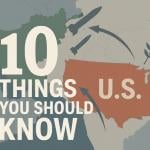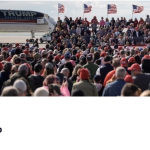This piece was originally published at The Oregonian on April 22, 2012.
By Paul Louis Metzger and Kyogen Carlson
As an Evangelical Christian theologian and Zen Buddhist priest, we ask religious leaders and politicians to weigh carefully their rhetorically charged claims this most political of seasons. Rhetoric is for arguments, not hood ornaments or bumper stickers. Instead of crashing into one another through rhetoric, rhetoric as defined as the art of persuasion is key to our navigating intersections of life with fellow drivers of diverse persuasions.
Sound bites often stand in the way of thoughtful argumentation. If we want to win votes or win people to our spiritual perspective, we will say almost anything. We load terms to unload on the opposition rather than define terms carefully and make careful deliberations. Take for example abortion. We talk about “prolife” and “pro-choice”. These are such limiting categories. Which aspects of life are we advocating for—the human unborn, the human born (including those in poverty and in prisons), the environment? What kinds of choices are we talking about—choices for others, choices for ourselves, choices for the sanctity of life?
The need to move beyond sound bites and bumper stickers came home to us several years ago, as we were engaged in inter-faith discussions. The pro-choice Buddhist Priest, Kyogen, informed a group of conservative Christians and liberal Buddhists in one of our dialogue sessions that he longs for the day there is no need for abortions given his Buddhist conviction on the sanctity of all of creation. This was very striking to Paul’s evangelical constituency’s “pro-life” ears. Rather than logger-heading and stacking the decks against one another, we have found the best way to proceed is to move through our respective convictions in search of common ground for the sanctify of human life in various spheres—from fetuses to the physically and spiritually impoverished. We doubt we will bring an end to abortions any time soon, but how can we work together to limit the number of them?
We have worked together on various fronts. Most recently, Kyogen responded to Paul’s essay on Buddhism for Thomas Nelson’s Connecting Christ: How to Discuss Jesus in a World of Diverse Paths. We view ultimate reality very differently, as the exchange makes clear. But we also view one another, our respective communities and our convictions very differently (for the better) as a result of these encounters.
So often, people take stands to prove their point or to win votes rather than to go in search of common ground for the common good. How do we move beyond the impasse? We must share space and time, share our hearts and values, and share our faults while looking for the good in others so that we move beyond the fault lines. In other words, in religion and politics, we must share our common humanity. Only in this way will we be able to navigate effectively the intersections of life. And just possibly, as we navigate well, we might be able to take the same turn from time to time as we drive in search of the common good.
We are Paul Louis Metzger and Kyogen Carlson, and we approve this message.
Paul Louis Metzger, Ph.D., is Professor of Christian Theology and Theology of Culture at Multnomah Biblical Seminary/Multnomah University, and the author of the forthcoming book, Connecting Christ: How to Discuss Jesus in a World of Diverse Paths (Thomas Nelson, May 2012). Kyogen Carlson is co-abbot of Dharma Rain Zen Center, Portland, Oregon, a transmitted Soto Zen priest, and author of Zen in the American Grain (Station Hill Press).












